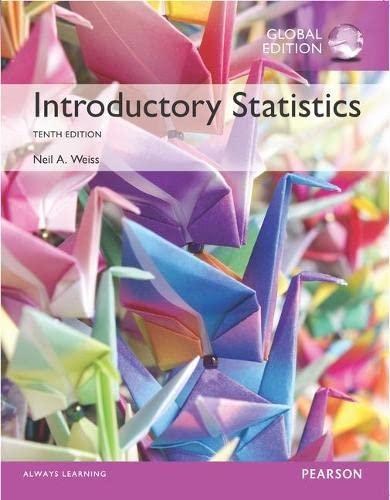Dexamethasone and IQ. In the paper Outcomes at School Age After Postnatal Dexamethasone Therapy for Lung Disease
Question:
Dexamethasone and IQ. In the paper “Outcomes at School Age After Postnatal Dexamethasone Therapy for Lung Disease of Prematurity” (New England Journal of Medicine, Vol. 350, No. 13, pp. 1304–1313), T. Yeh et al. studied the outcomes at school age in children who had participated in a double-blind, placebo-controlled trial of early postnatal dexamethasone therapy for the prevention of chronic lung disease of prematurity. All of the infants in the study had had severe respiratory distress syndrome requiring mechanical ventilation shortly after birth. On the WeissStats site, we provide the school-age IQs of the 74 children in the control group, based on the study results. Use the technology of your choice to do the following.
a. Obtain a normal probability plot, boxplot, histogram, and stemand-leaf diagram of the data.
b. Based on your results from part (a), can you reasonably apply one-standard-deviation χ2-procedures to the data? Explain your reasoning.
c. Overall, IQs of school-age children have a standard deviation of 16. At the 1% significance level, do the data provide sufficient evidence to conclude that IQs of school-age children in similar postnatal circumstances as those in the control group of this study have a smaller standard deviation than that of school-age children in general?
d. Find and interpret a 99% confidence interval for the standard deviation of IQs of all school-age children in similar postnatal circumstances as those in the control group of this study.
Step by Step Answer:





